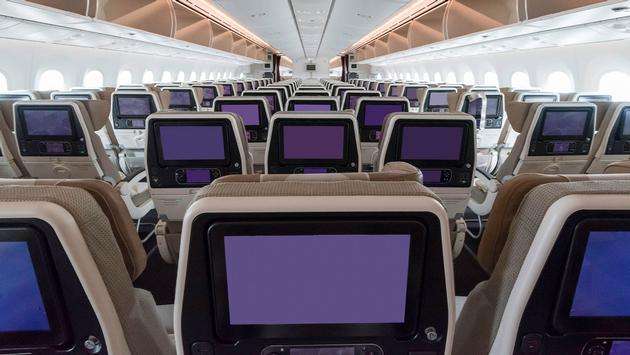Digital Disruption Will Shine a Light on Contactless Technology in 2021
Article written by David Millili , CEO of Angie Hospitality

The year 2020 will be known for halted travel and major disruptions in the hospitality industry. One positive takeaway has been the different kind of disruption the sector has faced – digital disruption. In an industry traditionally slower to adopt the latest technologies , COVID-19 amplified the need to augment processes, enhance operations and shift to smart technologies that address the new health and safety requirements for hotels.
With news of vaccines and many regions coming out of lockdowns, there is light at the end of this dark tunnel. It’s time for hotels to invest in new technology to help boost travelers’ confidence and prepare for recovery. Below are a few tech trends to watch for in 2021 that will make a big impact on staff and guests in the new year.
TREND 1: Mobile and Contactless Guest Services Will Increase in Prominence
Consumers are already using their phones to pay for things, to scan discount coupons and to store passes and tickets. This can already be seen in one area of hospitality, the airline industry, where guests scan an e-ticket on their devices to fly to their destinations. Guests will want their hotels to offer the same, easy check-in experience.
Hotels will now offer mobile apps for guests to check-in, to access rooms with mobile keys and to connect with guest services. This trend is amplified due to the health concerns of the pandemic to eliminate common touchpoints. Throughout the hospitality sector, and especially in hotels, we will see these options expanding out of necessity to provide a contactless and touchless experience – all to abide by health requirements and meet guest expectations.
By adopting these new technologies, hotels can offer new ways to reduce person-to-person contact and to avoid guests and staff touching potentially unhygienic surfaces and objects.
TREND 2: Voice Adoption Will Accelerate
In 2020, using an in-home voice assistant has become second nature. Juniper Research says that a massive 4.2 billion digital voice assistants were used worldwide this year, and around 30 percent of U.S. households now own a smart speaker. The same functionality will now be found in a hotel room.
Voice-enabled assistants, smart thermostats controlled by voice and other voice-controlled tech can make a big difference to help stretched staff while providing a socially distanced experience. Guests will simply walk into their room and say: “Turn down the AC” or “Send up more towels.” Additionally, many guests will avoid high-touch room features like remotes, light switches or curtains. Smart devices that control these features can streamline requests and eliminate drop-ins at the front desk.
The combination of our desire for home comforts during our hotel stay and concerns about guest safety and hygiene have created the perfect storm for contactless technology as we enter 2021. Loup Ventures estimates that the value of the global smart speaker market will jump to $35.5 billion by 2025 - so hold onto your seats and watch voice assistants grow next year!
TREND 3: AI and Automation Will Provide High-Touch Service Without the Touch
With the unfortunate reality of lower occupancy and reduced staff, hoteliers are looking for ways to augment their processes and optimize operations through the use of technology. The industry is known for its personal touch that makes a difference to stand out. But if there is a need to limit touchpoints, can hospitality still offer that high level of service?
Hotels can adopt technologies to offer additional cleaning efforts, including the use of robots . In-room guest assistants also help handle common requests like asking for food recommendations, requesting a late checkout or booking amenities. With stretched staff, these AI assistants can offload the front desk and cleaning staff and eliminate face-to-face contact to create a social distance experience. Additionally, some of the smart hotel room controls can optimize thermostats and lighting when guests check out to eliminate waste.
It’s time to get creative. There are ways to upgrade while also saving money. And cutting doesn’t have to mean worse service or less differentiation. Some companies are offering subscription models to upgrade at a much lower cost than traditional models. And sometimes monthly rates can be cut in half by switching to alternative cloud-based tech. Our friendly AI doesn’t mean replacing humans; it’s there to augment and support hotel staff.
With the increase in safety protocols, lift of stay-at-home restrictions and the promise of vaccines , the industry is hopeful that the demand for travel will pick back up in 2021. But for now, the industry will need to find innovative ways to optimize operations and enhance cleaning protocols through the right digital investments. Disruption doesn’t have to be a bad thing, and the pivot to adopt contactless technology, voice-enabled features and AI assistance can help move the industry into recovery during the new year.



